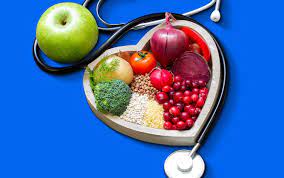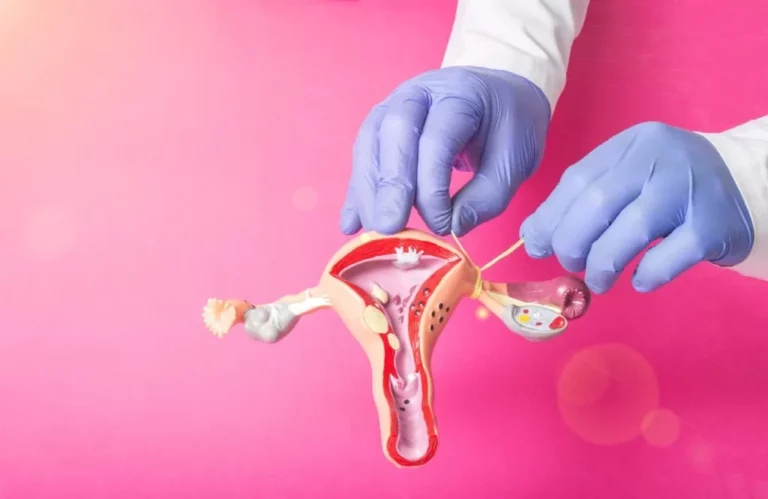
Your heart works non-stop, beating over 100,000 times a day. To keep this vital organ strong, a healthy diet is one of the most powerful tools at your disposal. Eating the right foods not only protects your heart but also supports your arteries, improves blood flow, and reduces your risk of heart disease, stroke, and high blood pressure.
In this article, we’ll explore the most effective heart-healthy foods and how you can easily include them in your daily meals.
Why Your Diet Matters for Heart Health
The foods you eat directly impact your cardiovascular health. Diets high in trans fats, sodium, added sugars, and processed meats contribute to:
- Plaque buildup in arteries (atherosclerosis)
- High blood pressure
- Obesity
- Increased cholesterol
- Inflammation
On the other hand, nutrient-rich, whole foods can reduce these risks, improve circulation, and even help repair damage.
Top Heart-Healthy Foods to Include in Your Diet
Here’s a comprehensive look at the best foods for your heart and blood vessels:
1. Fatty Fish (Salmon, Mackerel, Sardines)
- Rich in omega-3 fatty acids, which reduce triglycerides and inflammation.
- Helps lower the risk of arrhythmias and plaque buildup.
✅ How to Eat: Grill or bake salmon twice a week, or add canned sardines to salads.
2. Leafy Green Vegetables (Spinach, Kale, Swiss Chard)
- Packed with vitamins, minerals, and antioxidants.
- High in nitrates which lower blood pressure and improve arterial function.
✅ Tip: Use spinach in omelets, smoothies, or side dishes.
3. Whole Grains (Oats, Brown Rice, Quinoa, Barley)
- Provide fiber, especially soluble fiber, which helps lower LDL (bad) cholesterol.
- Supports a healthy weight and improves digestion.
✅ Tip: Start your day with oatmeal topped with berries and nuts.
4. Berries (Blueberries, Strawberries, Raspberries)
- Loaded with antioxidants like anthocyanins that reduce oxidative stress and inflammation.
- May improve vascular function and reduce blood pressure.
✅ Tip: Add to yogurt, smoothies, or eat as a snack.
5. Nuts and Seeds (Almonds, Walnuts, Chia Seeds, Flaxseeds)
- High in healthy fats, fiber, and magnesium.
- Lower cholesterol and improve artery function.
✅ Tip: A small handful of almonds or a tablespoon of flaxseed daily is enough.
6. Legumes (Beans, Lentils, Chickpeas)
- Rich in plant-based protein and fiber.
- Help reduce blood sugar and cholesterol levels.
✅ Tip: Add chickpeas to salads or have lentil soup for lunch.
7. Avocados
- Provide monounsaturated fats that lower bad cholesterol and raise good cholesterol (HDL).
- Also high in potassium, which helps regulate blood pressure.
✅ Tip: Mash on whole-grain toast or slice into salads.
8. Olive Oil
- A staple of the Mediterranean diet.
- Contains polyphenols and monounsaturated fats that protect the heart.
✅ Tip: Use extra virgin olive oil in place of butter or salad dressing.
9. Dark Chocolate (70% Cocoa or Higher)
- Contains flavonoids, which improve circulation and reduce inflammation.
- Can lower blood pressure in moderation.
✅ Tip: Limit to 1 small square (20-30g) per day.
10. Tomatoes
- Packed with lycopene, an antioxidant linked to reduced heart disease risk.
- Also a good source of potassium and vitamin C.
✅ Tip: Use in soups, sauces, or fresh in salads.
Foods to Avoid for Better Heart Health
While adding good foods is important, it’s equally vital to cut back on harmful foods that strain the cardiovascular system:
| Avoid These | Why |
|---|---|
| Processed meats | High in sodium and saturated fats |
| Sugary beverages | Lead to weight gain, diabetes, and inflammation |
| Trans fats (in fried foods, margarine) | Increase bad cholesterol and lower good cholesterol |
| Refined carbs (white bread, pastries) | Spike blood sugar and contribute to fat gain |
| Excess salt | Raises blood pressure and fluid retention |
Daily Heart-Healthy Meal Plan Example
| Meal | Healthy Option |
|---|---|
| Breakfast | Oatmeal with blueberries and chia seeds |
| Snack | Handful of almonds and a piece of dark chocolate |
| Lunch | Grilled salmon with quinoa and steamed spinach |
| Snack | Greek yogurt with sliced strawberries |
| Dinner | Lentil soup with whole-grain toast and avocado slices |
Lifestyle Tips to Maximize Heart Health Through Diet
- Hydrate: Drink plenty of water, and limit sugary drinks.
- Portion Control: Don’t overeat, even healthy foods.
- Cook at Home: Control ingredients and reduce sodium/oil.
- Read Labels: Avoid hidden sugars, sodium, and trans fats.
- Be Consistent: Long-term habits matter more than occasional meals.
Conclusion
A heart-healthy diet isn’t about deprivation — it’s about making smarter choices that nourish your body and protect your cardiovascular system. Incorporating foods rich in fiber, antioxidants, healthy fats, and plant-based nutrients can dramatically improve heart health and reduce the risk of serious illness.
By eating with your heart in mind, you’re investing in a longer, healthier life.
FAQs About Heart-Healthy Diets
1. How quickly can a heart-healthy diet make a difference?
Positive changes can occur within a few weeks, especially in cholesterol and blood pressure levels. Long-term consistency is key.
2. Are all fats bad for the heart?
No. Healthy fats from olive oil, nuts, seeds, and avocados support heart health. Trans fats and excess saturated fats are harmful.
3. Can I eat meat on a heart-healthy diet?
Yes, lean meats like chicken, turkey, and fish are better choices. Red and processed meats should be limited.
4. Is the Mediterranean diet heart-healthy?
Absolutely. It’s one of the most researched and recommended diets for cardiovascular health.
5. Do I need to completely avoid salt?
Not completely, but you should limit intake to less than 2,300 mg per day — or ideally around 1,500 mg, especially if you have high blood pressure.





